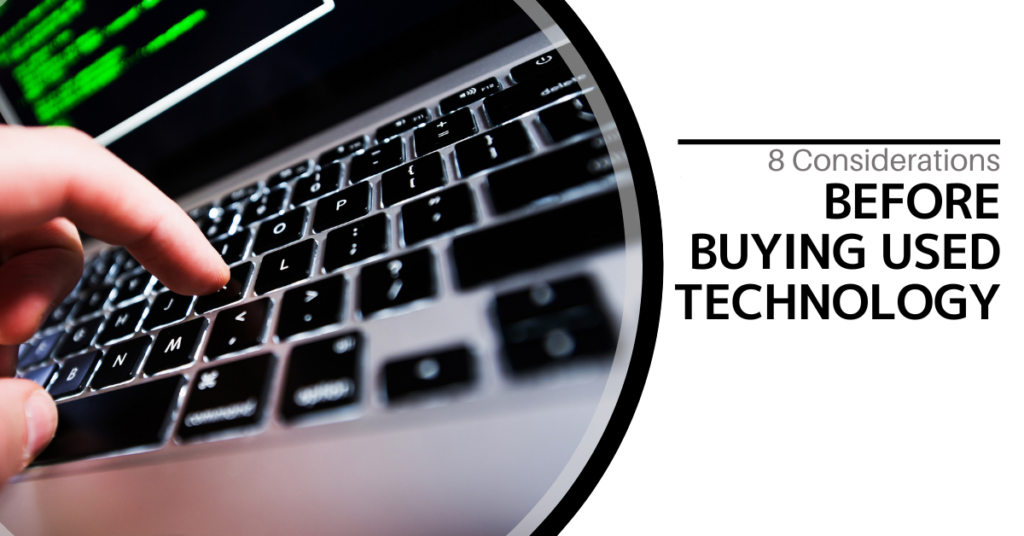|
Getting your Trinity Audio player ready...
|

Used tech can offer major savings, but only if you know what to look for. From smartphones to laptops, more people are choosing secondhand devices to cut costs and reduce e-waste. In fact, the global market for used tech is projected to hit $2.7 trillion by 2025. But before you grab a deal, it’s crucial to evaluate the device carefully.
In this guide, we’ll explore eight smart things to check before buying used tech to ensure you get value without regret.
1. Is the Device Still Receiving Updates?
When purchasing used tech, one of the first things to check is whether the device still receives software and security updates. Devices that are no longer supported by the manufacturer are more vulnerable to cyber threats. Without updates, your data could be at risk.
Visit the official website of the device brand and look up how long the model is expected to receive support. Some companies maintain longer update cycles than others, making them more reliable choices when shopping for used tech.
2. Check the Device’s Age
The age of a device can affect everything from speed to software compatibility. While some used tech is only a year or two old and still highly functional, older models may struggle with performance.
Research when the model was released and compare it with current devices. Consider if it still fits your daily needs or if spending a little more for a newer model is worthwhile.
3. Assess Battery Health
One of the biggest downsides of used tech is battery degradation. Over time, all rechargeable batteries lose their ability to hold a charge. Ask the seller about battery health or use available tools to check it yourself.
If the battery is in poor condition, factor in the cost of a replacement. A good deal on used tech may not be so great once repair costs are added.
4. Look for Physical or Water Damage
Inspect the device carefully for cracks, dents, or signs of water exposure. These physical flaws often signal internal issues, especially with used tech that’s been dropped or mishandled.
Corrosion, discoloration, or malfunctioning buttons are red flags. If you notice these, it’s best to skip the deal—even if the price is low.
5. Confirm Accessories Are Included
Used tech should come with its necessary accessories, especially chargers and cables. Without them, you’ll need to spend extra, which can quickly eat into your savings.
If possible, try to get original accessories. They’re more reliable and safer than third-party replacements. Optional extras like cases or earbuds are a bonus.
6. Know the Return Policy or Warranty Options
A good return policy is a safety net when buying used tech. Check whether the seller or platform offers returns in case the item doesn’t work as expected.
Some reputable sellers of used tech also offer limited warranties, giving you extra confidence in your purchase. Always read the terms before committing.
7. Compare Prices to New and Other Used Options
Don’t assume used tech is always the cheaper option. Sometimes, new devices are only slightly more expensive and come with full warranties and support.
Compare several sources—both used and new—before making a final decision. Look for trusted platforms and sellers with strong customer feedback.
8. Try Before You Buy, If Possible
Ideally, test the device before you buy. If you’re buying used tech locally, meet the seller and try the device in person.
If buying online, ask for a video showing the device’s condition and functionality. Trusted retailers sometimes let you test in-store before finalizing the sale, which adds peace of mind when investing in used tech.
Final Thoughts on Buying Used Tech
Buying used tech can be a smart move—if done right. It allows you to save money, reduce electronic waste, and access high-quality devices without paying full price. But it also comes with risks.
Always verify battery life, device support, pricing, and potential damage before committing. And remember: the best used tech is the one that balances price, performance, and reliability.
If you’re unsure where to start, reach out to us today. We’re here to help you find dependable used tech that fits your needs and your budget.
Twintel has grown into an expansive, full team of IT services professionals, acting as the outsourced IT department of non-profits, small to mid-size businesses, and enterprise-level corporations in Orange County, across California, and nationally.
Today, it’s the strength and deep expertise of the Twintel team that drives positive outcomes for clients. Each of the support staff, technicians, and engineers works diligently each day to make sure that the companies served have the seamless, secure, and stable IT environments needed to allow them to pursue their organizational objectives.